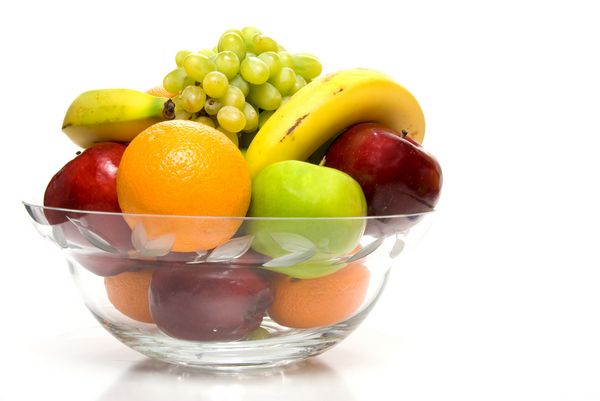Could Abe Lincoln Improve Your Snack Choices?

It’s no secret that sex sells, including when it comes to high-calorie snack foods. Consumers are constantly bombarded with images of gorgeous men and women gazing lustily at indulgent treats. Now researchers at Northern Kentucky University in Highland Heights have found that subtle reminders of platonic love rather than sexual love (think your grandma vs. your celebrity crush) may help foster healthy food choices.
Symbols of platonic love evoke feelings of commitment and caring that are long-term, whereas sexual love tends to evoke feelings of passion and romance that have a relatively short life span, said David Raska, a Northern Kentucky marketing professor who was lead author of the study.
And those feelings can affect food choices. Subtle signals of commitment may lead consumers to unwittingly choose healthier snack foods, according to the researchers, who tested their hypothesis on college students.
Between 45 and 97 students completed three experiments. In the first, they were randomly assigned to view one of three snack menus on a computer screen. Each menu had one of three possible backgrounds: hearts, kisses or a blank white screen. (In a pretest, the researchers had determined that hearts evoke feelings of platonic love, and kisses evoke feelings of sexual love.)
The students were then asked to imagine they had 75 cents and were about to choose a snack from one of the vending machines on campus. They were prompted to indicate which snack they would choose.
Roughly 70 percent of students exposed to the platonic love symbol — the hearts — clicked on a healthy snack, such as an apple or a box of raisins, while only 49 percent of students exposed to the kisses chose a healthy snack. Students assigned to the blank screen background made similar snack choices to the ones selected by students who saw the kisses.
"We were surprised to find no significant difference in snack choice between the kisses and the blank screen, suggesting that a consumer would go with the less healthy choice unless there was some subtle reminder not to," said Raska.
Sign up for the Live Science daily newsletter now
Get the world’s most fascinating discoveries delivered straight to your inbox.
In the second experiment, researchers chose more-complex symbols of passion and commitment. Photos of Marilyn Monroe and Abraham Lincoln popped up on the computer screen before the menu of snack choices. Sixty percent of participants exposed to Honest Abe choose a healthy snack when prompted by the computer, compared with fewer than 30 percent of those exposed to a scantily clad Miss Monroe.
To determine whether or not students would make the same snack choices in a real world situation, researchers then asked them to choose a snack from a basket of candy and fruit in the front of the classroom. Half the students entered a classroom in which the professor projected a picture of Lincoln onto a screen. Between classes, the professor switched the image to one of Monroe, and the remainder of the students entered the room. Again, roughly two-thirds of students exposed to Lincoln chose the fruit, while only one-third of those exposed to Monroe took the healthier snack.
Since all the study participants were students, it’s unclear from this study whether the same subtle cues would have had similar effects on people of different ages or professions.
It’s also not clear whether decisions regarding more costly food choices, such as ordering a meal in a restaurant or buying groceries for a family, would be affected by such subtle symbols, said the researchers.
Still, the results suggest that people don’t necessarily make food choices in a vacuum. "The findings of this study add to a growing body of research that suggests our temporal mind-set — whether we are thinking in terms of a long-term or short-term orientation — does affect our food choices," said Brent McFerran, a marketing professor and social psychologist at the University of Michigan in Ann Arbor, who was not involved in the current study.
Previous research has found that even subtle cues from our environment that have nothing to do with food — news of an economic crisis or the sight of people facing adversity, for instance — can lead people to seek high-calorie food choices.
"Being aware that these subtle influences do matter is an important step in making mindful, more healthy food choices," said McFerran.
"Surrounding ourselves with little reminders — images of family and good friends in our work spaces and on our cellphones, for instance — may help us to adopt a more holistic view of our lives that will drive us to make food choices that are good for us in the long term," said Raska.
Pass it on: Subtle cues can influence your food choices.
This story was provided by MyHealthNewsDaily, a sister site to Live Science. Follow MyHealthNewsDaily on Twitter @MyHealth_MHND. Find us on Facebook.
